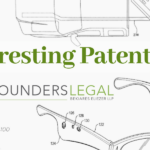Foreign companies often ask me what their first step to bringing a product to the US market should entail on the legal end. My answer is simple: make sure that your product would not infringe the intellectual property rights of others. When it comes to marketing and branding, a trademark search may suffice. When it comes to patents, however, there is a bit more digging that needs to be done.
A US patent holder has the right to ban the import of infringing products into the US for a period of 20 years. We must first perform a US patent search and to assess the state of the market in the US. From the search, we must identify the patents that are similar to your product. It is important to determine three things before importing a product that may be patented in the US:
- What exactly is patented?
- Although they may appear technical in nature, Patents are complex legal documents. Every representation made in the patent document, the file history, and the examination record serves to define the scope of patent protection to which the patent holder may be entitled. A full analysis is necessary to determine what patent rights a patent holder has.
- Is the patent valid?
- Patent laws often change and patents that were granted in the past often becoming invalidated due to new patent laws. Moreover, the patent holder must properly maintain his patent rights. Failure to do so will cause his patent rights to expire. We must make sure that the patent has been properly maintained. Lastly, a state-of-the art search may be performed to determine if any prior inventions may in fact have been publically available before the patent holder obtained his patent rights. These prior inventions may invalidate the patent holder’s rights.
- If the patent is valid, does importing our product “infringe” or “violate” the patent holders rights?
- We must compare your product to the patented product, line-by-line, to determine if your product overlaps the scope of protection granted to the patent holder. There is much room for interpretation, so a careful assessment is necessary.
If you are interested in more detail related to your situation it is best to speak with an attorney.
Yuri Eliezer heads the intellectual property practice group at Founders Legal. As an entrepreneur who saw the importance of early-stage patent protection, Yuri founded SmartUp®. Clients he has served include Microsoft, Cisco, Cox, AT&T, General Electric, the Georgia Institute of Technology, and Coca-Cola.
Source: Smartup Legal



